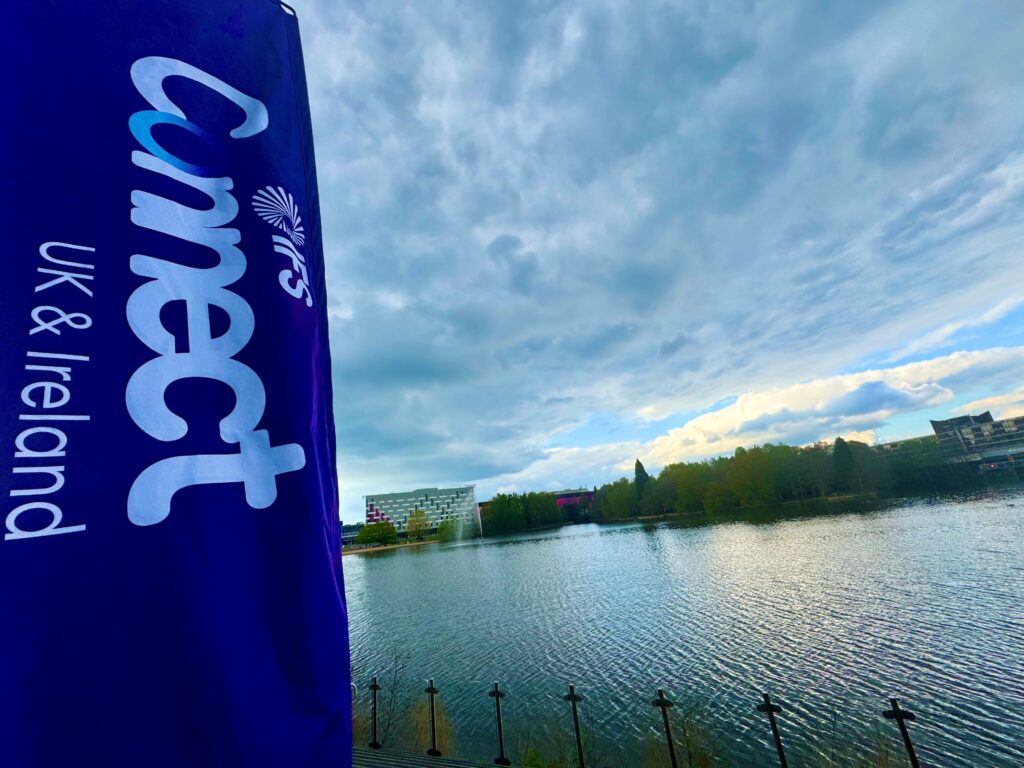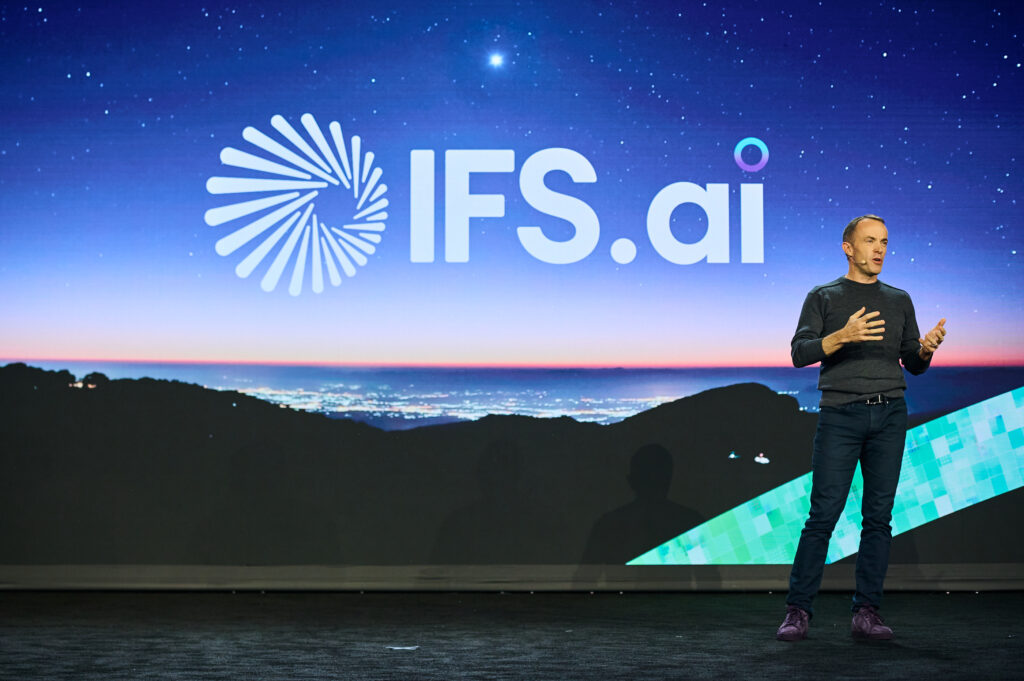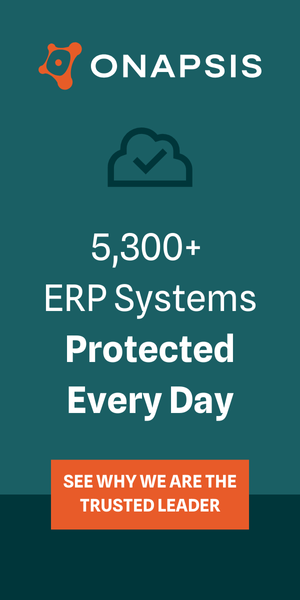Reporting from the ERP Today News Desk, live at the IFS Unleashed event in Orlando, Florida, Mark Vigoroso, Chief Content Officer, ERP Today/Wellesley Information Services and Stephanie Ball, Deputy Editor, ERP Today, sat down with Christian Pedersen, Chief Product Officer, IFS and Vaibs Kumar, SVP Technology, IFS for insights on why AI is the next industrial revolution.
Starting with the definition of Industrial AI, Pedersen said that, quite simply, AI that is provided to companies or customers in the context of their industry, their own company and its data, and the individual using it constitutes Industrial AI. “Our principle for Industrial AI incorporates every single type of AI and applies it in the context of the industry with laser precision,” Pedersen said. He added that through IFS.ai, they focus on removing hallucinations from AI to ensure accurate customer data.
IFS.ai is a complementary platform to IFS Cloud, and according to Kumar, IFS focuses on building its AI platform using specific industry use cases to help customers derive value from out-of-the-box solutions instead of a generic platform where customers must make additional investments of time and money to train new models. “IFS.ai capabilities are interspersed within IFS Cloud, and it therefore builds its capabilities around the existing and new valuable data of enterprises in IFS Cloud,” he said.
Real-life examples
From scheduling 340,000 technicians through IFS’ scheduling optimization capabilities to running the ticketing systems of the London Underground, Pedersen and Kumar shared some interesting real-life cases of customers who have implemented IFS.ai.
“We like to say that we keep London underground running,” joked Pedersen, giving the example of how the intricate train system of one of the world’s largest metropolitan cities depended on IFS systems for its ticketing systems’ scheduling and maintenance.
At IFS Unleashed, Pedersen met a customer who still used Outlook to schedule around 900,000 work orders for its technicians annually. “[This company was] totally blown away with all the capabilities provided by IFS.ai. For them, it would be an instant optimization of at least 25% if they went from something manual to AI,” Pedersen said.
“We are now applying this scheduling capability to various aspects of manufacturing, such as production schedules,” Kumar said. He added that these capabilities were being scaled to help complex and large assets like those in the energy or aviation industries optimize their maintenance workforce’s schedules.
“Our forecasting assimilation capability is another area that is helping customers,” said Kumar, giving examples of how the company’s demand planner software helps companies make accurate supply and demand forecasts by accounting for factors like the weather and supply chain disruptions.
Moreover, Pedersen noted that their products’ success depended on two tangible factors. The first was steadfast attention on the industries they focus on and within those industries, ensuring how their technology can improve their customers’ assets, optimize their talent management, and how those industries can provide better customer services. The second factor was how they could use AI in these areas with precision.
The future of AI and types of customers
Pedersen said about AI’s development, “The future of AI is tomorrow, because that is literally how fast [this technology is developing].”
According to Kumar, industries must continue to push the frontier on adopting new technology, while companies like IFS must incorporate it into an “easy-to-use manner within our software.”
“But most importantly, we also have to empathize with how our customers want to use our software,” Kumar added.
Pedersen said that IFS thought about its customers as partners as the latter’s success was intrinsically linked to theirs. From working with their customer advisory boards (CABs) that are sorted by industry to the technology first adopters, which IFS calls its pioneer customers, Pedersen said that depending on where the customer is in their technology journey, “Every one of us who is working with the customer also knows exactly if it is relevant to bring in Research & Development (R&D) or bring proposals forward.”





